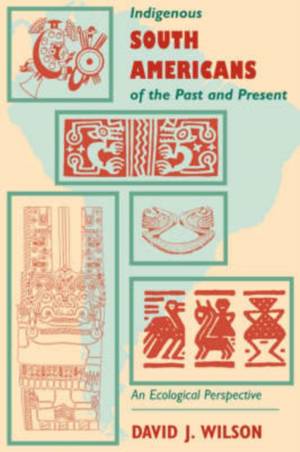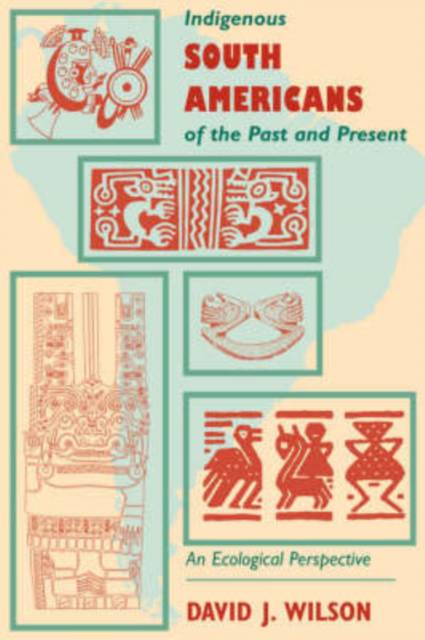
Door een staking bij bpost kan je online bestelling op dit moment iets langer onderweg zijn dan voorzien. Dringend iets nodig? Onze winkels ontvangen jou met open armen!
- Afhalen na 1 uur in een winkel met voorraad
- Gratis thuislevering in België vanaf € 30
- Ruim aanbod met 7 miljoen producten
Door een staking bij bpost kan je online bestelling op dit moment iets langer onderweg zijn dan voorzien. Dringend iets nodig? Onze winkels ontvangen jou met open armen!
- Afhalen na 1 uur in een winkel met voorraad
- Gratis thuislevering in België vanaf € 30
- Ruim aanbod met 7 miljoen producten
Zoeken
Indigenous South Americans Of The Past And Present
An Ecological Perspective
David J Wilson
Paperback | Engels
€ 126,95
+ 253 punten
Uitvoering
Omschrijving
Utilizing ethnographic and archaeological data and an updated paradigm derived from the best features of cultural ecology and ecological anthropology, this extensively illustrated book addresses over fifteen South American adaptive systems representing a broad cross section of band, village, chiefdom, and state societies throughout the continent over the past 13,000 years.Indigenous South Americans of the Past and Present presents data on both prehistoric and recent indigenous groups across the entire continent within an explicit theoretical framework. Introductory chapters provide a brief overview of the variability that has characterized these groups over the long period of indigenous adaptation to the continent and examine the historical background of the ecological and cultural evolutionary paradigm. The book then presents a detailed overview of the principal environmental contexts within which indigenous adaptive systems have survived and evolved over thousands of years. It discusses the relationship between environmental types and subsistence productivity, on the one hand, and between these two variables and sociopolitical complexity, on the other. Subsequent chapters proceed in sequential order that is at once evolutionary (from the least to the most complex groups) and geographical (from the least to the most productive environments)?around the continent in counterclockwise fashion from the hunter-gatherers of Tierra del Fuego in the far south; to the villagers of the Amazonian lowlands; to the chiefdoms of the Amazon v ea and the far northern Andes; and, finally, to the chiefdoms and states of the Peruvian Andes. Along the way, detailed presentations and critiques are made of a number of theories based on the South American data that have worldwide implications for our understanding of prehistoric and recent adaptive systems.
Specificaties
Betrokkenen
- Auteur(s):
- Uitgeverij:
Inhoud
- Aantal bladzijden:
- 502
- Taal:
- Engels
Eigenschappen
- Productcode (EAN):
- 9780813336107
- Verschijningsdatum:
- 1/01/1999
- Uitvoering:
- Paperback
- Formaat:
- Trade paperback (VS)
- Afmetingen:
- 156 mm x 230 mm
- Gewicht:
- 730 g

Alleen bij Standaard Boekhandel
+ 253 punten op je klantenkaart van Standaard Boekhandel
Beoordelingen
We publiceren alleen reviews die voldoen aan de voorwaarden voor reviews. Bekijk onze voorwaarden voor reviews.











